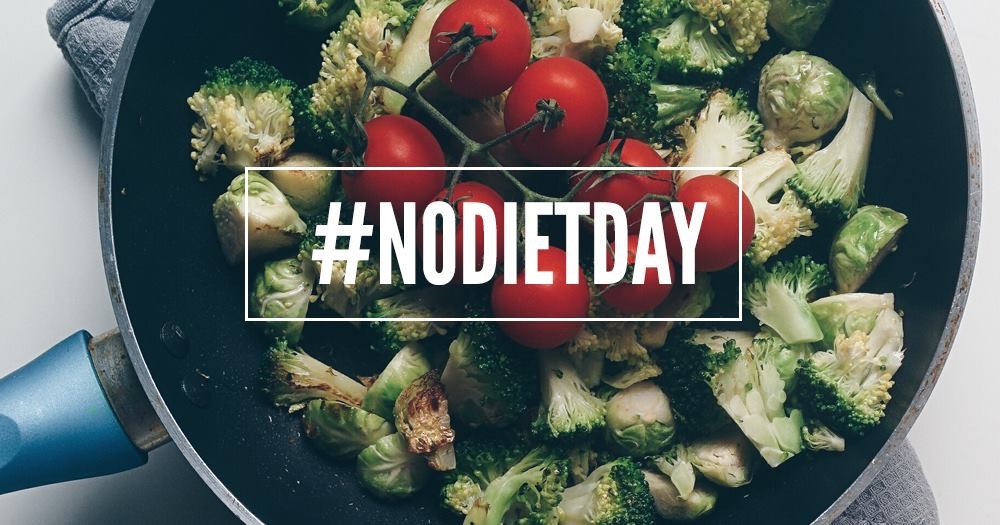5 Ways To Neutralize Your Fat Genes

If your family tree is filled with apple-shaped people — if you’ve ever been told your weight is genetic and there’s little you can do about it— then I have some news that’s going to change your life.
You see, fat runs in my family. My father was terribly overweight and died of a stroke at the young age of 52. As a teenager, I ballooned to well over 200 pounds myself. Obviously it was genetic: Like father like son. But wait. There was one chink in this seemingly uninterrupted chain of chunkiness: my older brother Eric. He was a model of fitness, a lean, fit specimen who cruised through school on athletic scholarships.
Here's the difference: my fat genes switched on, and his didn't. You see, the truth about fat genes is that they’re sort of like a loaded gun. They’re totally harmless, until you pull the trigger.
Scientists are just now starting to understand this about food and nutrients, too. What we’re learning is that weight gain is caused not by genetics but by epigenetics — the science of how genes are turned on and off by different environmental factors, including stress, chemical exposure and, yes, even diet.
And that means that right diet can turn those fat genes back off and make weight loss automatic. Here are five fast ways to help put your fat genes in “neutral” epigenetically speaking.
1. Cut down on saturated fats and sugar.
You know fat and sugar is bad for you, but what’s really interesting is the new research on how they conspire with your genes to set you up for weight gain. Foods high in saturated fats seem to cause weight gain even if calorie intake stays the same. The combination of sugar and fat has been dubbed an “obesogenic environment,” much in the same way a toxic waste dump linked to a cancer outbreak might be referred to as a “carcinogenic environment.”
2. Watch your vitamin intake.
Increased levels of B vitamins have long been associated with a higher prevalence of obesity and diabetes. Researchers believe that fortified infant formula may trigger the fat genes. If you’re more comfortable taking a multivitamin, it’s probably fine, but megadosing may do more harm than good.
3. Be cautious of canned foods.
The concern here is a compound called BPA, or bisphenol-A. Research has indicated that it may have an epigenetic effect on humans. Used to make plastic softer, it’s found in some plastic containers and also in the thin plastic linings of food cans. BPA can leak into foods that are acidic or fatty, like tomatoes, tuna and baby formula. BPA is used by most manufacturers, but Eden Organic and Trader Joe’s both sell BPA-free canned goods.
4. Go for a morning walk.
Bizarre but true: recent research found that getting direct exposure to sunlight between 8:00AM and noon reduced your risk of weight gain regardless of activity level, caloric intake or age. It’s possible that morning light synchronized your metabolism and undercuts your fat genes.
5. Cut down on antibiotics.
Our gut bacteria play a big role in keeping our fat genes in check by chomping on fiber and creating short-chain fatty acids (SCFAs) such as butyrate. SCFAs help tame our genetic propensity for weight gain and diabetics. When we take antibiotics for every sniffle, we create disorder in our gut bacteria and undermine their ability to create the SCFAs that keep our fat genes in check.
Photo Credit: Shutterstock
-
Diagnosed With a Herniated Disc? Get the facts on what really causes it and how to get relief
What is a herniated disc?Youve probably heard people say they have
-
Low Carb Diet Vs Low Fat Diet The Truth About Fat And Cholesterol
How did the dietary fat is bad roller coaster get started? Investigat
-
An Apt Solution To Kill Obesity-Phentermine Prescription
Obesity is the bane of your existence. My bulkiness always deviate
-
Believing the Truth About Abs Review
The Truth about Abs can be a diet and exercise program that increas
-
Stress-Eating: 5 Stress-Busters for Emotional Eaters That Work
STRESS. We all have it, but what is it costing us? Whether it&rsquo
-
Visualize Yourself Thin
In order to change the printout of the body, we must learn to rewri
- DON'T MISS
- Is Your Dream Body Painful?
- It Worked For Me: I Lost Weight By Giving Up Carbs
- How to Lose Weight in One Week
- Weight Loss Aids By Controlling Stress
- Discover The Best Way To Drop Some Weight Fast
- Fat loss Advice for Heavy Women
- Help Your Teenager Cope With Fast Weight Loss Programs And Surgeries
- #1 Weight Loss Tip: Lack Of Sleep Causes You To Be Fat
- Weight Reduction – Drink Facts
- Smoking Makes You Fat?




